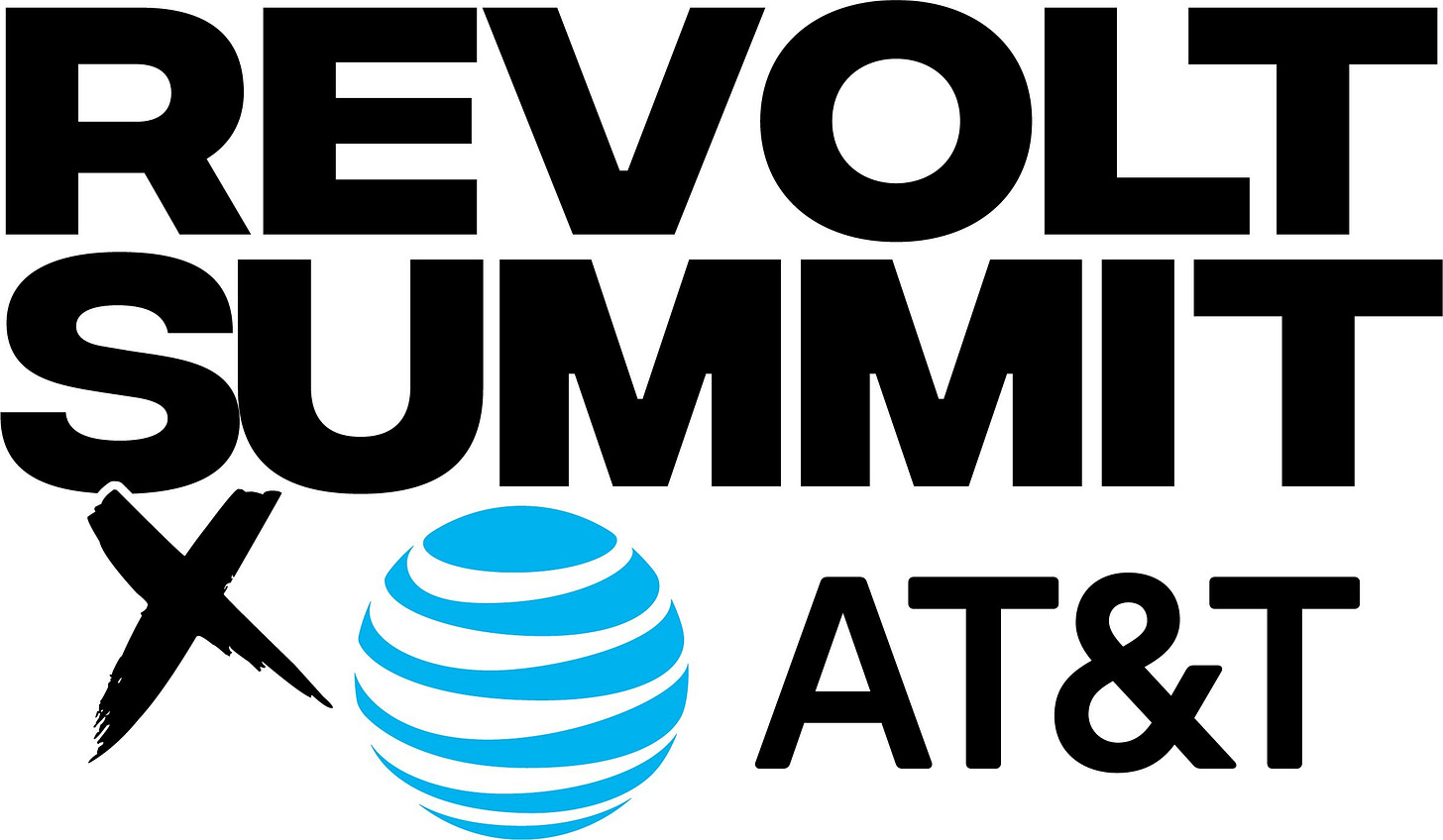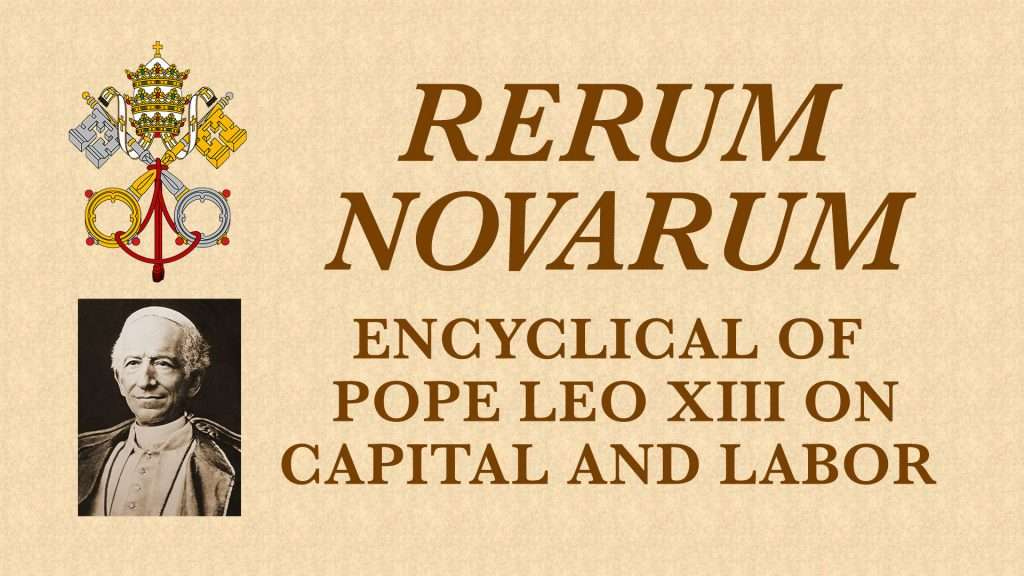Killer Mike, Sen Marco Rubio & Pope Leo XIII
A Hip-Hop Artist, U.S. Senator, & Pope On Capitalism, Socialism, Family & Culture: Unity & Divergence on What Works & What Doesn't in America
If you don’t follow hip hop, politics, and Catholicism, you missed it.
Three men with radically different backgrounds: a black Georgia hip-hop artist, a Cuban-American Florida senator, and an Italian Catholic Pope had an intellectual throw down on capitalism, socialism, politics, and culture.
This essay examines how Killer Mike (whose real name is Michael Render) Senator Marco Rubio, and the Catholic Pope Leo XIII unite and diverge in their scrutiny of economics, politics, and culture.
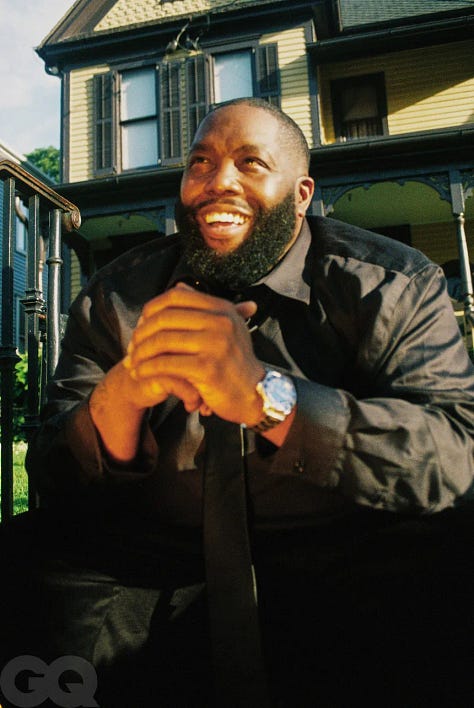
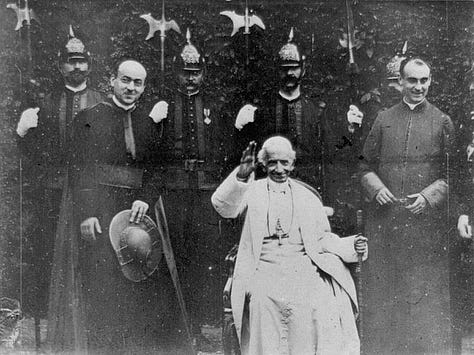
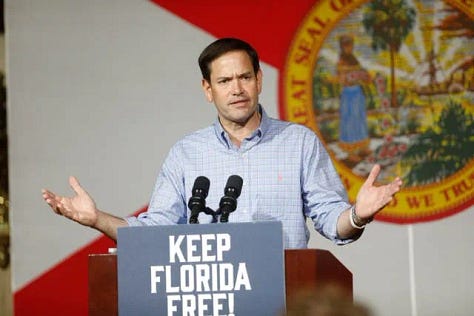
While some American politicians and pundits promise socialism as a one-stop-shop panacea to America’s economic and societal woes,1 others vehemently defend capitalism and its markets no matter their effect on America’s economy and society, families included.2
Refreshingly, these three men offer what’s missing from today’s over-simplified, either/or, polarized conversations about what’s right and what’s wrong in America.
They give mature, nuanced, thoughtful consideration to how government, markets, money, men, women, and families interact.
Their respective analysis is deeply personal and cerebral - as Killer Mike shows:
“What you see when you see me is the product of Black Excellence. This is a process. You are a part of a process; the same way a Jewish child is a part of a 10,000-year process of keeping the culture. Never allow in your black as* life (sic or) let your history to be wiped away!”3
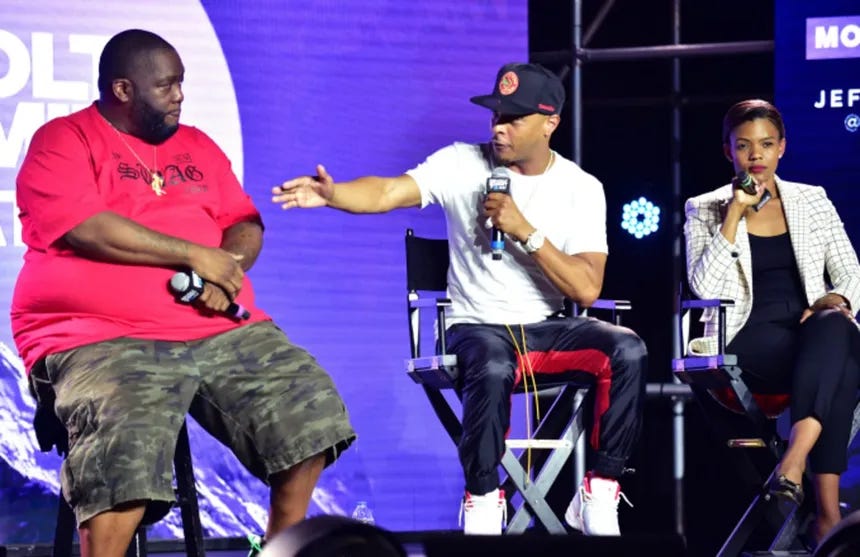
Most importantly, their compelling critique of socialism, capitalism, culture, and family is prescient for the upcoming 2024 elections.
An articulate, blunt, very funny political and constitutional interlocutor and hip hop artist Killer Mike lectured on the importance of personal responsibility, education of one’s, economic and historical savoir-faire, respect, and open dialogue at Atlanta’s September 2019 REVOLT summit.
REVOLT had advertised its first 2019 summit as “offering young people essential, real-life networking experience, to help them develop and hone the crucial skills business owners need to grow their companies.”4
That’s as capitalistic as it gets.
Georgia’s Killer Mike is a hip-hop singer who has bragged about working the “chitlin circuit,” in his early days, so he’s 100% proud of his early hard grind to be a success.
He’s also a lover of the U.S. Constitution, a proud raconteur of American history, and a staunch defender of gun rights for one’s provision and protection, so, puzzingly this “socialist” often sounds like a free market conservative cousin to a conservative.
That cousin could be Florida’s Senator Marco Rubio, a Republican, champion of religious freedom, cheerleader of economic opportunity, and proud son of U.S. immigrants.
Rubio gave, just two months later, in November, 2019, a lecture called Common Good Capitalism at The Catholic University of America in Washington, DC, and at times he sounded like an old-fashioned and authentic liberal.5
He read from his thoughtful paper entitled: “American Investment in the 21st Century: Project for Strong Labor Markets and National Development.”6
First Things published a version of the paper entitled “What Economics is For,”7 in its August, 2019 edition.
(Senator Rubio later writes in 2021 about the essential dignity of work.)8
Rubio has a familial political likeness to Killer Mike, as a sedulous defender of the working man — except when he’s excoriating socialism and its ugly outcomes.
Senator Rubio in his talk borrowed heavily from Rerum Nevarum,9 an encyclical by Pope Leo XIII, a 19th century Catholic intellectual, church reformer, and passionate defender of the working man and woman and the family.
Published May 15, 1891 Pope Leo XIII, the encyclical responds to the Industrial Revolution’s deleterious effects on men, women, children, and families.
In broad colorful strokes Pope Leo XIII paints a similar economic portrait as Killer Mike and Senator Rubio of the intrinsic value of working people and their families, as well as the need to share in the fruits of their labor, as business owners do:
“The labor of the working class – the exercise of their skill, and the employment of their strength in the workshops of trade is indispensable… Justice demands that the interests of the working classes be carefully watched over by the administration, so that they who contribute so largely to the community may themselves share in the benefits which they create.”10
The Pope departs from Killer Mike and agrees with Senator Rubio when he harshly denounces socialism as any working man’s solution to political and economic woes:
“To remedy these wrongs the socialists, working on the poor man's envy of the rich, are striving to do away with private property, and contend that individual possessions should become the common property of all, to be administered by the State or by municipal bodies. They hold that by thus transferring property from private individuals to the community, the present mischievous state of things will be set to rights, inasmuch as each citizen will then get his fair share of whatever there is to enjoy.”11
He adds:
“But their contentions are so clearly powerless to end the controversy that were they carried into effect the working man himself would be among the first to suffer. They are, moreover, emphatically unjust, for they would rob the lawful possessor, distort the functions of the State, and create utter confusion in the community.”12
Sharing their personal stories and quoting economic facts and American history, the hip hop artist and U.S. Senator show a love of United States history and its people and an abiding respect for education, family, and entrepreneurship .
Interestingly, that’s even as they represent opposite poles of the American political spectrum: a democratic socialist and a conservative Republican.
Like Pope Leo XIII, Render and Rubio share a love of neighbor, family, community, an authentic desire for them to flourish, and harsh words for those who don’t.
Their respective analysis of what’s right and what’s wrong in America’s economy and politics dovetail even as their solutions diverge.
Killer Mike pushes for personal property ownership, self-discipline, knowledge, education, and active civic engagement.
Senator Marco Rubio agrees and also advocates limited federal governance.
Rubio also asks for corporations to step up and look out for their workers and people and for government to find incentives, or carrots, not sticks, to compel them.
Each man echoes the Roman Catholic Pope who wrote 128 years earlier: men and women, whether entrepreneurs and business owners, laborers or guild artisans, rich or poor, have a moral obligation to take care of one another and their country.
Neither the performer, nor the politician and pope have ideas out of sync with the average American millionaire or billionaire.
The American Man and Woman & Wealthy Business Owners on Capitalism
Most Americans and owners of corporations, businesses, and start-ups agree that a business runs best when it invests in their people, community, and country.
A service-oriented business equals higher profits and greater customer return.
Don’t believe it?
Watch any episode of Shark Tank13 where investors’ interests pique when a start-up or small business entrepreneur man or woman explains how and whether they have an all-American workforce and give back to their team, town, community and country.
Or, listen to Mark Cuban describe to Bari Weiss what capitalism is NOT:
“You know, capitalism is meant to be very malleable. You know, it's not, you know, take as much money from everybody as you can and, you know, ‘Screw them, who cares what happens to them.’ That's not capitalism. That's just greed.”14
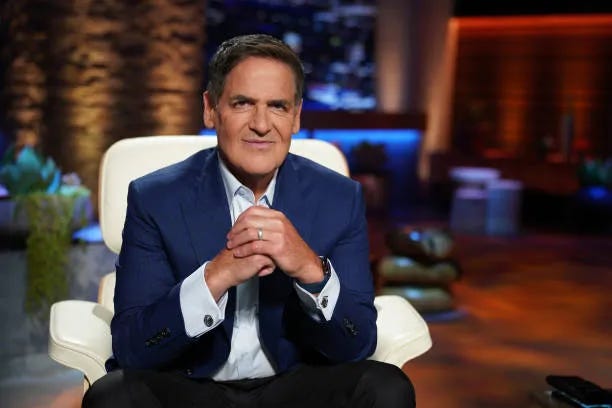

Or, listen to an interview with billionaire Chobani Greek yogurt founder Hamdi Ulukaya, an immigrant from Turkey as he discusses the value of putting his employees first by offering company ownership and shares:
“My first promise I made is the people who will build this company with me will always be center of this place and always be recognized in all dimensions, including financially. And can I make an example, that the people that left behind, people that were forgotten, especially in food making and manufacturing, how do I make them the most important people in the company?... But that was also one of the smartest things that we’ve done. If Chobani became what it became, we broke all the records because our people always found a way to make things happen.. But it only happened because people just found a way. We just found a way.”15
Killer Mike, Revolt Conference, September 2019
The 2019 Revolt Summit’s closing panel featured Killer Mike, TI, Candace Owens, and other important black activists: Steven Pargett of Trap the Vote and activists Katrina Pierson and Tamika D Mallory with Jeff Johnson as moderator.
They were speaking at a networking extravaganza with an audience of hip-hop and rap’s best musical artists, executive and business talent, and young entrepreneurs mostly among the African American community.
That year Killer Mike was the standout.
He sounded like the cool U.S. Government high school teacher any American parent wishes their kid had, minus the many many swears.
Blow by blow Killer Mike landed educated punches on what actually has worked in America’s history, politics, and economy:
“I am a proud American. Let me say that first. I have no problem saying that because I’ve been provided an opportunity in this country – I travel around the world - that other black and women don’t have…“Now it is my responsibility to take that opportunity and create more opportunities by way of economy, by way of having a platform to speak on the behalf of and by way of making sure my constitutional rights and privileges are honored..”16
He continued:
“…which is why you hear me..with people on the left saying, ‘I’m not giving up my gun for nobody!’ because the 2nd amendment promises me that I speak and say what I like because the first amendment promises me that.”17
He stated candidly his choice for President: “I’m supporting Senator Sanders,” and with deft humor describes his politics:
“I’m on the black side of the aisle. I’m on the side of the good potato salad. My political interests start and end with how I grew up in Atlanta..it’s just a little foolish for us to say that we don’t inspire children by saying someone died for your rights..”18
Yet, in his advice and admonitions to an almost all-black audience on how to improve themselves and the black community, he sounded less like a socialist and more like a 21st century version of a Booker T. Washington, today’s renowned American intellectual and economist Thomas Sowell - and not at all like Sanders.
Why?
He emphasized personal responsibility, education, property ownership, history knowledge, self-reliance, and gun ownership by stating:
“You should be hunting, fishing, shooting, training, and focusing on self-reliance and not simply focusing on the people who hate to take care of you..African Americans have to be a bigger part of the economic landscape of this country. We should be owners and not buyers. We should be a merchant class not only consumers.”19
Here again, he sounded like a social and political conservative, as he championed personal responsibility, self-reliance, community strength, and constitutional rights.
With colorful anecdotes and an accurate play by play of American history, Killer Mike argued for a savvy personal ethos of responsibility and active civic participation.
Atlanta was exhibit A.
“Atlanta is a black city that succeeded…We had a black paper that was owned by black Republicans that helped the SCLC, owned by black liberals. We had black ministers who were ultimately conservative and told Dr King when he was a young man in the late 50’s (sic when he said) ‘hey I want to start a civil rights campaign’ there’s Alabama take you’re a** down there and go. It didn’t start in Atlanta because Atlanta n***rs had money, and they were a little bougie. It started outside Atlanta and came back with young people.” 20
Like Rubio, he celebrated the accomplishments of the older generation with constant homages to their sacrifices and successes:
“..the old people now who you disagree with once were young and because they did things like took bullets, took beatings, took bashes to the brain (sic so) you have that opportunity! So, there’s a blood oath that’s been made. There’s been a blood oath made in every American.” 21
In his talk, Killer Mike highlighted, as Marco Rubio would later, the success of his education, personal history, and strong cultural identity.
He emphasized skills training, political participation with the vote, entrepreneurship and especially education and history as the means to improve black America:
“When we learned about the American Revolution at Collier Heights Elementary in an all-black neighborhood we did not learn about a white country that simply used us as slaves. We learned that the first person to die on the behalf of this country was a black man named Crispus Attacks. That gives a sense of pride to a black boy. Well, what happens to that black boy then? He grows up and goes to Frederick Douglas High School.””22

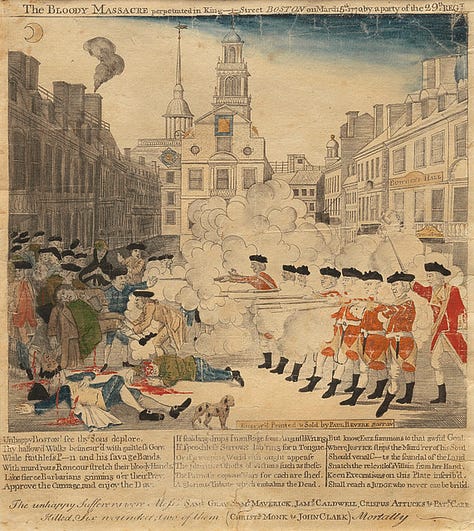

His captivated audience heard articulate arguments and sound data on the critical importance of an education, an informed vote, the value of black fathers in the family, and the need for self-ownership by black businesses and black entrepreneurship:
“Frederick Douglas, the most photographed man in the 19th century, a person who worked with Democrats and Republicans and helped free black people and women. I would not know that without a syllabus from Clark University.”23
He admonished the crowd, even as they applauded:
“I’m going to call my friend and say vote! Take your child to vote, so it becomes a habit. Who is your congressman? Who is your Senator? Who is your Senate council person? And if you cannot answer that you have already failed yourself…And now it is my responsibility because I stand on the shoulders of others. It is my responsibility because it is my clear and present right, my responsibility on behalf of my children right now, and that’s why I vote.”24
Candace Owens, his fellow panelist argued that the greatest challenges facing black America are 3-fold: illegal immigration that undercuts wages and job-getting, illiteracy, and fatherhood absence in the black home.
Repeatedly interrupted by the crowd’s boos and hisses, on her behalf and that of other female panelists, in a grand show of gallantry he thundered:
“Now hold on, at a certain point, we can’t be a**holes!! In particular these are black women. At a certain level, everything she just said Louis Farrakhan said for the last 25 f*cking years. You cannot take the truth and be mad at who tells it to you. So just chill, shut the f*ck up and receive the information!” 25
He argued for a political pragmatism.
With a willingness to work with any politician – whether Trump, Sanders or someone else – his first question is always: how will you help black Americans?
He pushed for civic illiteracy, civil discourse, and exhorted attendees to read and to study American history - and assigned a short college-level reading syllabus.
Later, he taught when America in its history was great for Black America, and also how he viewed the current two-party system:
“I’ll tell you when America was great. 7 years after the ending of the Civil War. Blacks within 7 to 15 years accumulated over 15 million acres of land. Black people were the only skilled labor in there. So, if it was welding to be done, iron bending, cotton picking it was black people, so instantly your value became more.” 26
He added:
“This is my thought; I don’t care if you destroy the Democrat or the Republican party. At one time blacks were Republicans, and you dominated those 7 years after the Civil War you were Republicans. You had more blacks in in the House and Senate than you do now and you dominated your own economic communities. You did that as Republicans. As Democrats you did the same thing in Atlanta...the most important thing is self-organizing.”27
Finally, he gave his audience homework:
“This is your homework.. “F** trying to convince you! I want you to go home tonight and listen to Thomas Sowell, listen to Walter E Williams, listen to Antonio Moore, Yvette Carnell, I want you to listen to the economic strategy of Elijah Mohammad and Marcus Garvey I want you to listen to the political strategy of Stokely Carmichael. I need you to get on your study because I’m tired of arguing who has the best master.”28
He punctuated his talk with this a bellowed admonition:
“You are already free. Act like it. Do your research. Do your research.”29
Senator Marco Rubio, The Catholic University of America, November, 2019
Two months later to a standing room only crowd of students, professors, and journalists, in November 2019 at The Catholic University of America Senator Marco Rubio hit hard at the inadequacies of American capitalism and how it has left behind the country’s working and middle class.
Rubio began by championing U.S. strengths: free people, free markets, and service:
“I am an enormous supporter of free enterprise. It made America the most prosperous country in human history but the prosperity and created profits for businesses. America’s strength does not come from the size of our economy alone…but how that success served the broader national interest. For example, we never could not have defeated Nazi Germany or Imperial Japan without both an advanced profitable industrial base and willingness of those companies to participate in the war effort; And after the war, without it, returning veterans could not have found a job.. if we did not have strong businesses creating dignified work.”30
Like Killer Mike, Rubio highlighted his personal story as a proud child of Cuban immigrants who demonstrated the importance of family, fatherhood, entrepreneurship, community participation, and work:
“That’s the place my parents came to in 1956, poorly educated immigrants to find dignified work, to buy a home, to raise a family and to leave all four children with a better life..that story because it says a lot about America that’s worth fighting for. I am an unabashed believer in American exceptionalism and the American dream, and its transformative power..”31
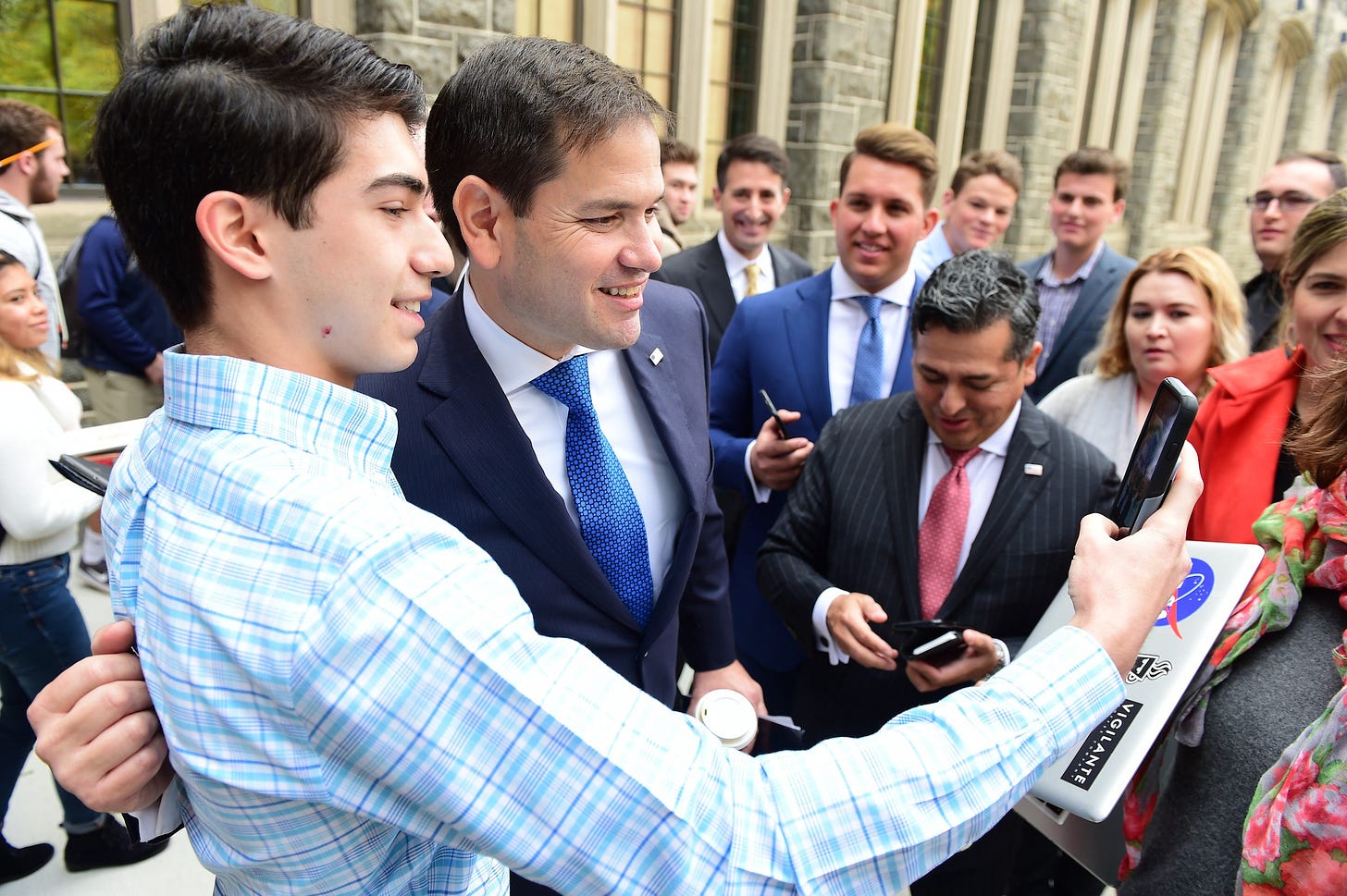
Rubio contrasted the dignity of work for all Americans against corporate America’s hyper focus on profit — with grave costs to family, community, and country.
Dignified work makes men better men he said, referencing Pope Leo XIII.
Interestingly, Senator Marco Rubio, a free market fan of capitalism, criticized corporate greed and profit-over-people strategies, admonished corporate leaders to grow a conscience and advocated federal governance, the provenance of liberals
Similarly, Killer Mike had championed socialism but offered conservative solutions that emphasized individual action on behalf of the family, community, and country.
Rubio recommended government incentives that reward corporate civic responsibility and negative consequences that punish corporate greed over gentility:
“Our current government policies today get this wrong. We reward and incentivize business practices that promote economic growth, that often solely benefit shareholders – at the expensive of new jobs and better pay. Our tax code is biased toward stock buy backs. Buy backs aren’t inherently immoral; they do not boost job production, worker pay. Why should they have tax preferences? ” 32
He suggested that tangible government incentives when: “Corporations that further the common good, reinvest their profits in a way that creates new jobs and higher paychecks.33
These trends, he argues, are ripples that have a tsunami size impact on America’s trade and market relationship with its largest competitor, China:
“Recognizing that market outsourcing is the most efficient use of capital – the market says we can generate more product at lower cost. But that outcome can be contrary to our national interest. That’s how we’ve allowed China to build up their capabilities while at the same time we destroy ours e.g., rare earth minerals critical to higher technology—and also a source of dignified work. We’ve allowed ourselves to become completely dependent on China – the market said they can do it faster and cheaper…”34
To undergird his arguments, Rubio quoted heavily from 19th century Pope Leo XIII’s encyclical Rerum Novarum.
Written during an Industrial Revolution that disrupted workers’ lives by displacing them, Rerum Novarum disparages socialism and enumerates “rights and duties of capital and labor,” or, moral obligations workers and capitalist have to one another. 35
Rubio explained, “The ultimate goal of any society (sic is) to make men better by providing regular people the opportunity to attain the dignity that comes with hard work, with ownership, and with raising a family.”36
He offers a capitalism that works for the working man and woman and their family:
“We need to restore common good capitalism… it’s a system of free enterprise in which workers fulfill their obligation to work and enjoy the benefits of their work and businesses enjoy their right to make a profit and re-invest enough of those profits to create dignified work for the workers and America..”37
He continued:
“Businesses have a right to make a profit and workers have a right to share in the benefit of the profits their work helped create. Businesses have an obligation to re-invest some of those profits productively for the benefit of the workers and the society that made it possible and workers if they’re able-bodied have an obligation to work.”38
Killer Mike criticized politics and politicians who make promises and deliver nothing.
Like him, Rubio attacked, specifically, corporations, who choose profit over people: “We are now concerned with rights, but not as excited about obligations.”39
Senator Rubio asked CEO’s and shareholders for corporate efficacy whereas Killer Mike emphasized a personal efficacy of his listeners.
Rubio conjectured that not to do so left a hollowed-out economy and society that was counter-productive to the drivers of the American economy, the American people — all of it out-of-step with historical forces of good by capitalism:
“We’ve been left with an economy and society no one seems happy about. We still have millions of people in America unable to find dignified work. They feel left behind, forgotten and ignored.. Even in (sic the) last 3 years of robust GDP growth.. The results of decades of this kind of negligence? Weakening families, eroding communities, and fueled rise in grievances. Over 70% of Americans feel that their fellow Americans on the other side of the political debate are a threat to our country.”40
What happens to corporations who emphasize profit above the good of their employee, their community, the larger business sector, and the American economy?
Rubio explained:
“When we started only focusing on the right of businesses to make a profit and stopped recognizing that with that right comes a core obligation to re-invest in the country that made that possible, it’s how we wind up with a belief to return money to share-holders as a right above all others. But it is not a right above all others… The economic numbers tell the tale: over last 40 years the financial sector and their share of corporate profits increased from about 10% to nearly 30% the share of those profits sent to shareholders increased by 300% while investment of those profits back into the companies and their, their workers and their future decreased by 20%. Last year corporations on the S&P 500 spent over a trillion dollars buying back their own shares; they collectively said we’ve nothing to invest in.”41
Sen Marco Rubio emphasized an inter-connectedness of culture and good capitalism as a positive pinch point and said greedy capitalism splinters family and community
“Family is the most basic and most important of all our institutions. The family is first place where school kids attend, learn to be productive and successful adults. It’s a building block of any society..A church is a community. Members come together, collect meals for people at Thanksgiving; sports teams are a community, where parents are the coach, equipment manager, fans; the PTA organizes for needy kids.. it is a community…”42
Like Killer Mike and Candace Owens who emphasized the importance of fathers and fatherhood for the black community, Marco Rubio emphasized the importance of men
Without dignified work as providers of the home they are degraded:
“Men are hit especially hard by this. Without dignified work the core of a being a man – providing for family – the impact, is corrosive and devastating. Today we witness a decline in marriage, in childbirth, in life expectancy and what is up? Suicide, drugs.”43
He explained that capitalism – without an emphasis and focus on the dignity of the worker would have a deleterious effect on generations he told his young audience:
“You’re part of most educated and ethnically diverse generation in our history…Unfortunately, you’re about to become the first generation to do worse off than your parents.”44
Nevertheless, socialism as a solution is a deal-breaker for Rubio.
He deftly enumerated its present day and historical ills:
“For as bad as all this is…socialism would be far worse. The idea that government can impose the balance between the obligations and rights of the private sector and working Americans has never worked. Europe has tried and abandoned it. It didn’t work. It won’t work here. It’s never worked. We have millions of refugees who came here fleeing socialism who can be witnesses to that a government that guarantees you a basic income, controls where you work, and how much you make; a government that promises free health care which is not free, controls who your doctor is, what care you receive, and when you receive it, a government that promises that colleges and schools are free, controls what school you have to go to and even what you’re allowed to be taught. The government that seeks all of our society, steps into the role of community, churches, PTA, community, tells churches what they can preach and how community members can interact.”45
Rubio had pragmatic aspirations for his young audience’s future: get smart about AI, invest in a plan to mine rare earth minerals, and open up emerging markets:
“All this technology is useless because we do not have the rare earth minerals to put it together… because even though the market said its most efficient location is somewhere else…not being able to do it ourselves worked contrary to our national interest..There are many other emerging markets: aerospace, telecommunications, autonomous vehicles, energy, transportation, housing…the goal is to retrofit past engines of productivity.”46
Rubio’s plans for a better America of the future were detailed and specific
“expand federal per child tax credit”
“Harness free market growth but benefiting our people and society…”
Ask: “does our country exist to serve the interest of the market or does the market exist to serve the interest of our nation and of our people”
‘market gives dignified work and in turn gives people a chance to give time, talent, treasure to churches, to community, makes it easier to form strong families and re-invigorates institutions that bind our people… “
“we have to accept the indivisible tie that exists between culture and economics. So once again we can re-claim the model on our seal, e pluribus unum…”47
Like Killer Mike, Senator Marco Rubio is pragmatic about politics and politicians, and expressed a willingness to work with anyone who puts Americans’ interests first – especially in the face of China’s competitiveness.
“What was my goal today? I want to keep our country from coming apart. It strikes me today politics is about total victory, crushing the other side…For the first time in 3 decades faced with competitor, China, to reflect global order…to reflect their values…one in which the principle of freedom: religion, speech, replaced by what they call ‘societal harmony,” 48
With a thought provoking question and a challenge to his young audience he ended:
“Ask people of Hong Kong what they think of societal harmony…being America has always been difficult. The Americans before us accepted that challenge. We have before us the opportunity to create an America that is even greater than ever before, to make you the generation to become the freest most prosperous people who have walked the earth, and the 21st century will be known as the New American century…”49
Pope Leo XIII, Catholic Pope, May 15, 1891
Pope Leo XIII in Rerum Novarum finds common ground with Killer Mike and Senator Rubio on private property as a natural good for men and women; some kind of justice - in the form of personal responsibility and limited governance on un-checked capitalism — as well as the importance of family, culture (faith), and community.
The sixth of seven sons, Pope Leo XIII, born in 1810 as Gioacchino Vincenzo Raffaele Luigi, was the son of a Count, a noble lineage he researched, proved, and defended in order to attend Accademia dei Nobili in Rome.50
A true Thomist, he did not think science and reason, nor faith and religion, in conflict with another.51
Originally from Siena, his family fled from there to Carpineto, under Pope Clement VI because they had sided with the Medici. As a bishop in all of his appointments, he sedulously provided for the poor, orphaned children and the elderly — and at the same time befriended and conversed artists, intellectuals, and philosophers in his home. 52
A brilliant philosopher and theologian, and astute diplomat, as a student he studied civil law, rhetoric, and the sciences. He was the first pope to be audio recorded and filmed and one very keen to protect his people from advances in science and philosophy that could be used to degrade them.53
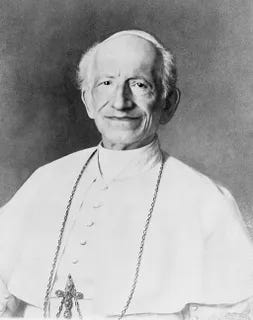

Pope Leo XIII undergirds his argument with natural law54 principles and states:
“The fact that God has given the earth for the use and enjoyment of the whole human race can in no way be a bar to the owning of private property.”55
His critical words of the plight of working families - at the time of the Industrial Revolution — sound as though written today in 2024:
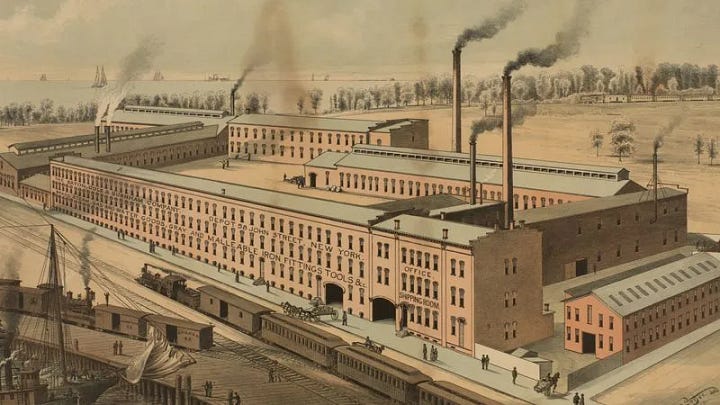
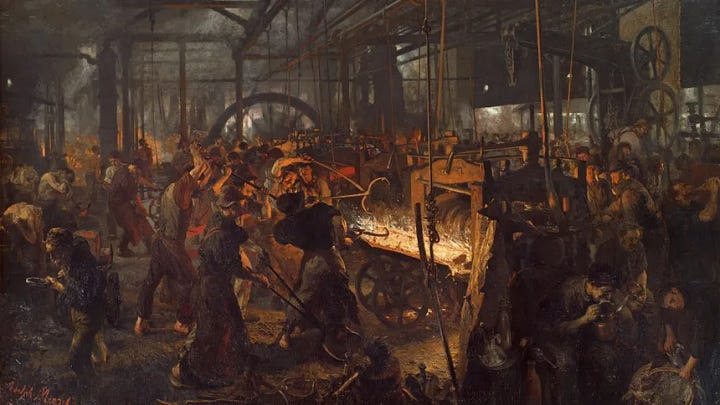
“..there is general agreement, that some opportune remedy must be found quickly for the misery and wretchedness pressing so unjustly on the majority of the working class: for the ancient workingmen's guilds were abolished in the last century, and no other protective organization took their place. Public institutions and the laws set aside the ancient religion. Hence, by degrees it has come to pass that working men have been surrendered, isolated and helpless, to the hardheartedness of employers and the greed of unchecked competition….the hiring of labor and the conduct of trade are concentrated in the hands of comparatively few; so that a small number of very rich men have been able to lay upon the teeming masses of the laboring poor a yoke little better than that of slavery itself.”56
He celebrates dignifying work, acquiring property, and improving one’s life — and scourges socialism as the theft of human dignity and personhood itself:

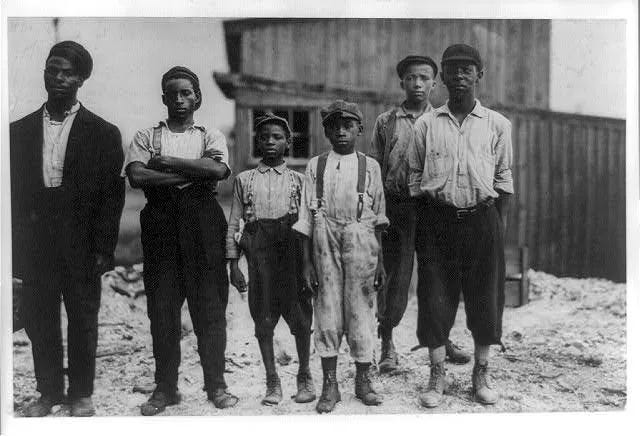
“It is surely undeniable that, when a man engages in remunerative labor, the impelling reason and motive of his work is to obtain property, and thereafter to hold it as his very own. If one man hires out to another his strength or skill..he..expressly intends to acquire a right full and real, not only to the remuneration, but also to the disposal of such remuneration, just as he pleases..if he lives sparingly, saves money, and, for greater security, invests his savings in land, the land, in such case, is only his wages under another form; and, consequently, a working man's little estate thus purchased should be as completely at his full disposal as are the wages he receives for his labor… Socialists, therefore, by endeavoring to transfer the possessions of individuals to the community at large, strike at the interests of every wage-earner.. they would deprive him of the liberty of disposing of his wages, and ..of all hope and possibility of increasing his resources and of bettering his condition in life.”57
He argues that socialism is the end of justice itself - for the working man and woman.
He contends that private property ownership is congruent with natural law — as is the desire of a man and woman to provide for themselves and their families.
Right reason, a good conscience, natural law, and protection of individual workers and their families ought to motivate both government and its leaders as well as business and its owners, he opines.
Pragmatic solutions abound in his tract: dignified, livable wages for the working man, partnerships between workers and owners, 0 child labor, guilds that act as intermediaries between the business owner and worker, days off - especially a Sabbath day of rest — and finally community civic and social associations that can help the family.
Good wages fairly negotiated between business owners and workers — that is, the fair trade of a worker’s labor, time, skills, and expertise for a business owner’s needs — are not only a means to property ownership, but also civil peace and justice itself:
“Let the working man and the employer make free agreements, and in particular let them agree freely as to the wages; nevertheless, there underlies a dictate of natural justice more imperious and ancient than any bargain between man and man, namely, that wages ought not to be insufficient to support a frugal and well-behaved wage-earner….If a workman's wages be sufficient to enable him comfortably to support himself, his wife, and his children, he will find it easy, if he be a sensible man, to practice thrift, and he will not fail, by cutting down expenses, to put by some little savings and thus secure a modest source of income. Nature itself would urge him to this…The law, therefore, should favor ownership, and its policy should be to induce as many as possible of the people to become owners.”58
Pragmatically speaking, the Pope recognizes those who have more wealth and means to business ownership and the many who labor; neverthless, they are required, to keep the peace, to assist one another, in civil associations and fair agreements:
“If working people can be encouraged to look forward to obtaining a share in the land, the consequence will be that the gulf between vast wealth and sheer poverty will be bridged over, and the respective classes will be brought nearer to one another. A further consequence will result in the great abundance of the fruits of the earth. Men always work harder and more readily when they work on that which belongs to them; nay, they learn to love the very soil that yields in response to the labor of their hands, not only food to eat, but an abundance of good things for themselves and those that are dear to them..(with sic) willing labor…men cling to the country in which they were born,..if..afforded.. means of living a decent and happy life.”59
Final Thoughts
The irony in Senator Marco Rubio’s solutions, juxtaposed with Killer Mike, is that while the former is a free-market guy championing a democratic Republic, capitalism, and the free market, many of his solutions are government-centered.
Mirroring that irony, is that the latter, Killer Mike, an unapologetic supporter of the socialist Sanders, who has profited mightily from capitalism, proposes personal responsibility, free enterprise, education, attention to the family, private entrepreneurship, and private property ownership.
Those ideas the building block solutions championed by libertarians, conservatives, Republicans.
These 2 very different men agree on many material points of culture, even as they stand as political polar opposites.
They echo Pope Leo XIII, one of the world’s smartest champions of the working man, family, edifying culture (faith), and responsible capitalism at a tumultuous time.
That’s a heartbeat of hope for an American heart that desires to resuscitate itself and America’s heart: its people, families, culture, economy, politics, and national discourse.
Shannon Thaler, “Chicago Mayor Proposes City-Owned Grocery Stores as Walmart, Whole Foods Exits Leave ‘Food deserts,’” New York Post, September 18, 2023. The article states: “ Chicago Mayor Brandon Johnson said he wants to open city-owned grocery stores to serve neighborhoods that have become “food deserts” after four Walmart stores and a Whole Foods closed….Neither Walmart nor Whole Foods disclosed exactly why they suffered continued losses over the years….One explanation could be the shoplifting epidemic taking over America, which has seen retailers struggling to cope with the consequence-less pilfering, stripping them of revenue..” https://nypost.com/2023/09/18/chicago-mayor-considers-creating-city-owned-grocery-stores/ (accessed January 9, 2023).
Karin Rives, “West Virginia fires BlackRock over Asset Manager's Climate and China Stance,” S&P Global Market Intelligence, January 18, 2022. The article states: State Treasurer Riley Moore of West Virginia is quoted as saying about Blackrock and its CEO Larry Fink: “Fink is pouring billions in new capital into China, turning a blind eye to abhorrent human rights violations, genocide and that country’s role in creating the COVID-19 global pandemic," and “Any company that thinks Communist China is a better investment than West Virginia energy or American capitalism clearly has a bad strategy. We will continue to give our state's business to people who aren't simultaneously trying to destroy our economy." https://www.spglobal.com/marketintelligence/en/news-insights/latest-news-headlines/west-virginia-fires-blackrock-over-asset-manager-s-climate-and-china-stance-68468375 (accessed January 10, 2023).
“T.I., Killer Mike, Candace Owens, & More Talk: Black Agenda, Voting, & Donald Trump,” | 2019 REVOLT Summit, September 16, 2019. https://www.revolt.tv/show/2019-09-11/102466/revolt-presents/ (accessed by September, 2019).
“T.I., Killer Mike, Candace Owens, & More Talk: Black Agenda, Voting, & Donald Trump,” | 2019 REVOLT Summit, September 16, 2019. (accessed November, 2019).
Senator Marco Rubio, “Catholic Social Doctrine and the Dignity of Work: Marco Rubio on What the Economy is For,” The Busch School of Business, The Catholic University of America, November 5, 2019. https://business.catholic.edu/news/2019/10/human-dignity-and-the-purpose-of-capitalism.html (accessed November 7, 2019).
Senator Marco Rubio, “American Investment in the 21st Century: Project for Strong Labor Markets and National Development,” Senator Marco Rubio, U.S. Senate website, September 17, 2019. https://www.rubio.senate.gov/wp-content/uploads/_cache/files/9f25139a-6039-465a-9cf1-feb5567aebb7/4526E9620A9A7DB74267ABEA5881022F.5.15.2019.-final-project-report-american-investment.pdf (accessed November 7, 2019).
Senator Marco Rubio, “What Economics is For,” First Things, August 26, 2019. https://www.firstthings.com/web-exclusives/2019/08/what-economics-is-for (accessed November 7, 2019).
In First Things, September 2021 Senator Marco Rubio writes of the importance and dignity of work for all in society, borrows from Pope John Paul II’s Laborem Exercens: “human work has an ethical value of its own,” and cites a need for protection of and investment in the family and small businesses, and references the child tax credit, paycheck protection program as policy solutions. September 19, 2021. https://www.firstthings.com/web-exclusives/2021/09/honoring-the-dignity-of-work (accessed January 8, 2024).
Pope Leo XIII, “Rerum Novarum Encyclical on Capital and Labor,” Vatican, May 15, 1891. https://w2.vatican.va/content/leo-xiii/en/encyclicals/documents/hf_l-xiii_enc_15051891_rerum-novarum.html (accessed November 10, 2019).
Ibid.
Ibid.
Ibid.
“Shark Tank,” ABC, a show in which entrepreneurs look for investors and business mentors for their start-ups. https://abc.com/shows/shark-tank (accessed January 10, 2024).
Bari Weiss, My Conversation with Mark Cuban,” The Free Press, June 15, 2021. (accessed June, 2022).
Adi Ignatius, “Chobani Founder Hamdi Ulukaya on the Journey from Abandoned Factory to Yogurt Powerhouse,” Harvard Business Review: Business & Society, April 25, 2022. (accessed August, 2023).
“T.I., Killer Mike, Candace Owens, & More Talk: Black Agenda, Voting, & Donald Trump,” | 2019 REVOLT Summit, September 16, 2019. See on youtube REVOLT with title above (accessed November, 2019).
Ibid.
Ibid.
Ibid.
Ibid.
Ibid.
Ibid.
Ibid.
Ibid.
Ibid.
Ibid.
Ibid.
Ibid.
Ibid.
Senator Marco Rubio, “American Investment in the 21st Century: Project for Strong Labor Markets and National Development,” Senator Marco Rubio, U.S. Senate website, September 17, 2019. https://www.rubio.senate.gov/wp-content/uploads/_cache/files/9f25139a-6039-465a-9cf1-feb5567aebb7/4526E9620A9A7DB74267ABEA5881022F.5.15.2019.-final-project-report-american-investment.pdf (accessed November 7, 2019).
Ibid.
Ibid.
Ibid.
Ibid.
Pope Leo XIII, “Rerum Novarum Encyclical on Capital and Labor.” Vatican.
Senator Marco Rubio, “Catholic Social Doctrine and the Dignity of Work: Marco Rubio on What the Economy is For,” CUA.
Ibid.
Ibid.
Ibid.
Ibid.
Ibid.
Ibid.
Ibid.
Ibid.
Ibid.
Ibid.
Ibid.
Ibid.
Ibid.
“Pope Leo XIII: 1878-1903,” Papal Artifacts, 2021. https://www.papalartifacts.com/portfolio-item/pope-leo-xiii/ (accessed January 12, 2024).
Ibid.
Pope Leo XIII, New Advent: Catholic Encyclopedia, 2023. https://www.newadvent.org/cathen/09169a.htm (accessed January 12, 2024).
Ibid.
Mark Murphy, “The Natural Law Tradition in Ethics,” Stanford Encyclopedia of Philosophy, May 26, 2019. https://plato.stanford.edu/entries/natural-law-ethics/ (accessed January 11, 2024). Murphy reaches back to antiquity, Aristotle, and primarily the Middle Ages, Aquinas, to define 2 distinct aspects of natural law: “The first is that, when we focus on God’s role as the giver of the natural law, the natural law is just one aspect of divine providence; and so the theory of natural law is from that perspective just one part among others of the theory of divine providence. The second is that, when we focus on the human’s role as recipient of the natural law, the natural law constitutes the principles of practical rationality, those principles by which human action is to be judged as reasonable or unreasonable; and so the theory of natural law is from that perspective the preeminent part of the theory of practical rationality.”
Pope Leo XIII, “Rerum Novarum Encyclical on Capital and Labor,” Vatican.
Ibid.
Ibid.
Ibid.
Ibid.
ad majorem dei gloriam




